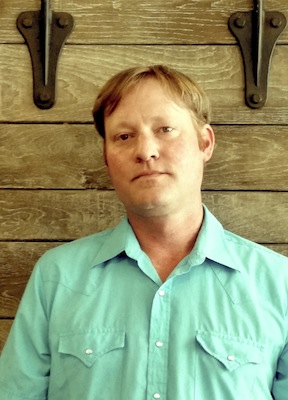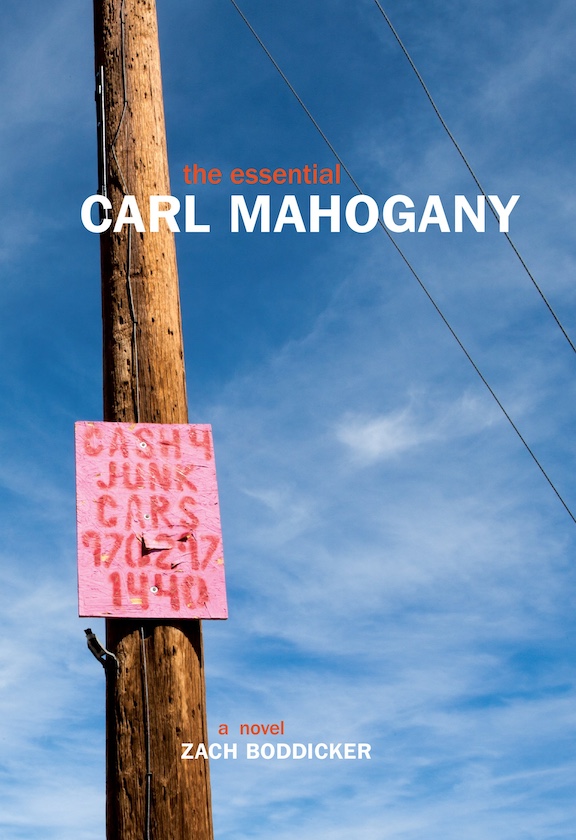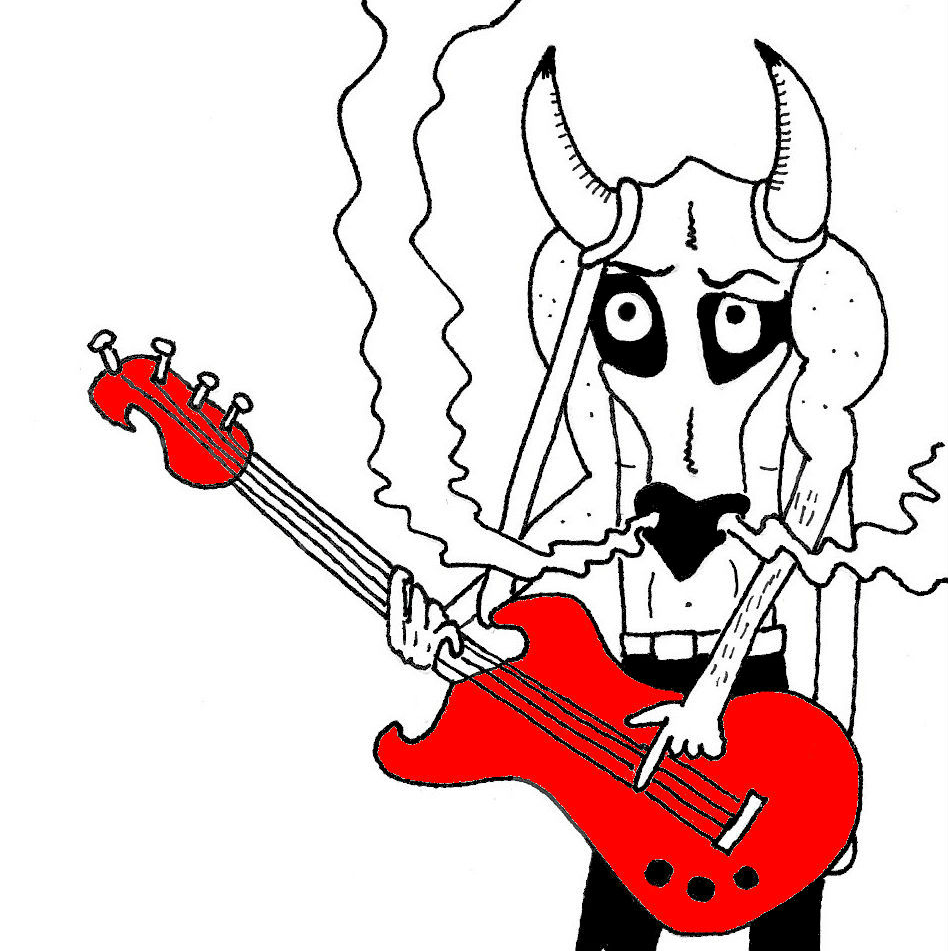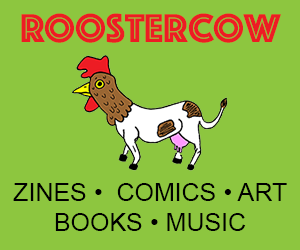
Author Zach Boddiker interview. Published May 12, 2017
I first met Zach Boddicker in Fort Collins, Colorado in the summer of 2001. I was on a short tour with my band and we stayed in Ft. C. for a few days to play a show and attend a Fourth of July BBQ. Zach took us out in his pickup truck on some gravel road in rural Colorado and introduced us to a rope swing that was used to swing out over the fast-moving waters of an irrigation canal which we repeatedly plunged into.
In the aughts, Zach played pedal steel guitar in the band Drag the River and I caught a few of their shows when they came through Chicago, at the Empty Bottle and the Fireside Bowl, where we hung out and drank way too much beer in the box truck the band traveled in. Zach also contributed his short story, “To Fifty More Happy and Healthy Years” to the Reglar Wiglar in 2003 (RW#19).
Since then Zach has developed himself into a full-fledged author and his debut novel, The Essential Carl Mahogany, was published earlier this year by Last Chance Press. The title character is a midlevel country music artist who tries his best to live a hassle-free existence of which he is only marginally successful. Full of great dialogue, humorous observations, and dry wit, it’s a strong debut. I recently asked Zach a few questions about the book and the process of completing it. — Chris Auman
Where did the idea for The Essential Carl Mahogany come from?
I don’t remember there being a eureka moment—more of a hairball effect. I was finishing grad school at the time I started writing this, and had a bunch of critical theory material on my mind that I wondered what I could do with. I remember refusing to watch any more cliché “Rise & Fall of…” biopics about famous musicians/artists. I was also getting restless to move away from the short story format. So, with tons of pre-existing junk, experiences, hearsay, and unreliable memories I decided to proceed.

Who is the inspiration for Carl and how much of your own experiences playing in bands and going on the road in shitty vans did you draw upon for the story?
I didn’t have anyone specific in mind, and the chain of events that occurs isn’t based on anything in the historical record—that I’m aware of. I couldn’t think of any novels with a Nashville songwriter as a protagonist. Let it be noted that I did no research to find out if there were any novels with a Nashville songwriter protagonist.
I wanted someone who could realistically be on top of their game, but who could feasibly move about the general population without being noticed. If I were to run into someone like Jim Lauderdale or Kostas somewhere, like at the Tomb of the Unknown Soldier or on a “Sweating to the Oldies” Caribbean Cruise, I wouldn’t likely recognize them, even though I know who they are. The name, Carl Mahogany, came from an off-the-cuff remark made by Jeff Wing of Avon, Indiana, at a 4th of July horseshoe tournament in 2005 or 2004.
One band I played with did a couple of two-week tours in a van similar to Percy, but I do not recall the year, make, or model of that particular van. It was either a Ford or Chevy and built within two or three years of 1982. It broke down during a thunderstorm outside the town of Deer Trail, Colorado, and may have been junked immediately after that.
All of the venues Carl visits are based on real venues in their respective towns, though the names have been changed. I anticipated receiving accusations that this story was just a thinly veiled autobiography since I am loosely affiliated with the music business. So, I overcompensated by making sure nearly everything that happens in this book is made from scratch—to the best of my ability.
How did the idea for the book develop?
The first third of the book was written as part of my grad school thesis. So, I had somewhat of a deadline to meet for that. By the time I turned that in, I still didn’t have an ending in mind. It was written in a linear fashion, rather than in chunks.
How long have you been writing?
I wrote two passable, published short stories as an undergrad, so I guess you could say since 2000-2001. Writing prose wasn’t my main focus, so I didn’t actively pursue writing in the years to follow. So, my prose output has been spotty, if not mostly non-existent until finishing this book.
How long did it take you to write the book?
The first third of the book took about four months at two to three hours a day. The last two-thirds took about four months at one to two hours a day. I stepped away from it for a couple years after the first third and thought the rest of the story through, so the last two-thirds went pretty quickly.
What is your writing schedule?
I don’t currently have a schedule in terms of setting aside an hour or two a day to type or longhand it. Most of my formulating is done while driving, so if this can be considered writing, then I spend anywhere from three to five hours a day working through ideas.
What kinds of stages did the book go through, were there any big shifts in style, POV, etc?
Fortunately, there were no major changes at any point that required deletion of large amounts of pages. This was mostly due to having worked out the main trajectories in my head before committing them to Word 97. There are no deleted scenes that I can remember. All were heavily revised though.
What do you think will be the final act for Carl Mahogany? Do you think he is a character you’ll revisit?
I’d consider doing some sort of spin-off or tie-in in the future. This story only covers about a month’s worth of time, so there are many possibilities. He will most likely make a cameo appearance in my next book.
Who are your favorite writers and/or books?
Chuck Klosterman’s Fargo Rock City was an important book for me. It at least convinced me that I should seriously consider the pursuit of writing a book. Kent Haruf, Don DeLillo, Vonnegut, and Larry McMurtry have been consistent favorites over the years. I’m currently working my way through the Goodreads “Literary Westerns” list.
Zach also writes songs, plays guitar, and sings in the Denver-based band 4H Royalty.
Read More
Read More
Read a 2025 interview with Zach Boddicker.

